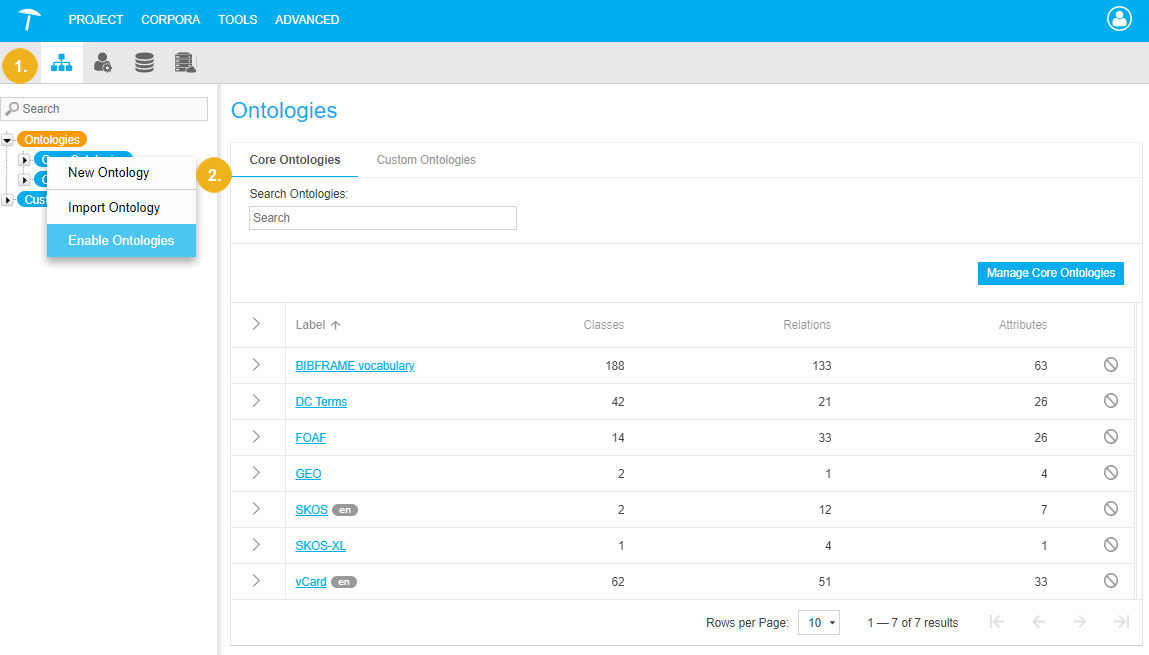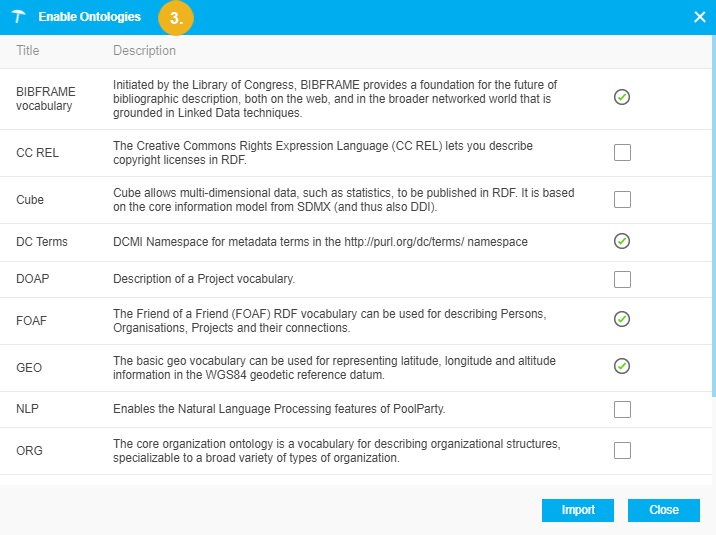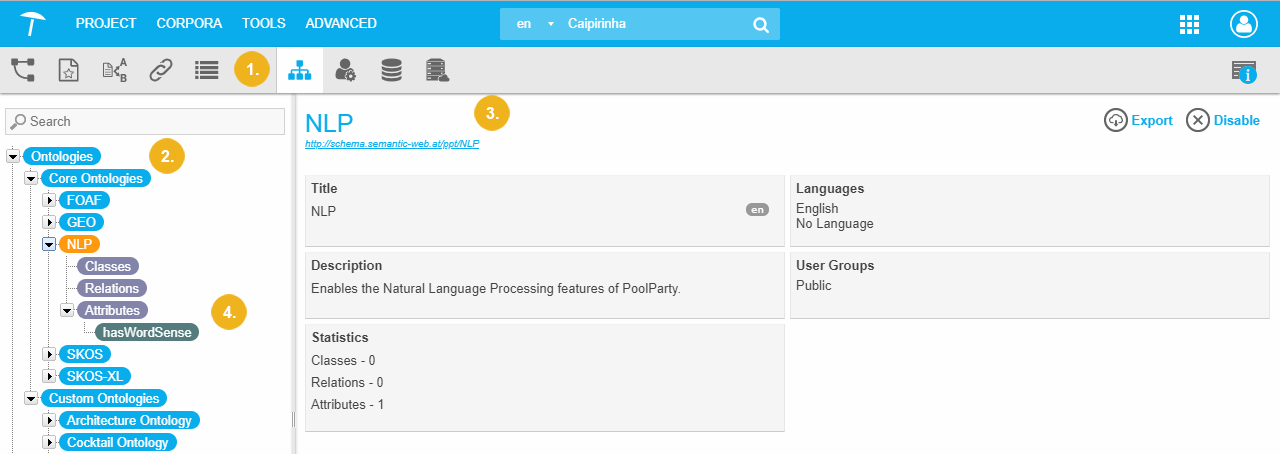Add Core Ontologies
Add core Ontologies
This section contains a short guide on how to enable predefined ontologies in PoolParty.
PoolParty provides Available Core Ontologies that can be imported and used with a few mouse clicks.
Tip
In addition to the provided core ontologies, you have the option to import your own. For more information, refer to Import an Ontology or Custom Scheme.
Open the Ontology Management.
Click Enable Ontologies in the Ontologies' node Details View. Alternatively, you can right click the Core Ontologies node and select Enable Ontologies in the context menu.

The Enable Ontologies dialogue opens.

Activate the ontology you need.
Click Import to enable the selected ontologies.
You can use these ontologies to Create a Custom Ontology and to Create a Custom Scheme based on them. Additionally, you can add classes, relations and attributes of such ontologies to Add Classes, Relations and Attributes to Your Custom Scheme. And you can reuse classes of such ontologies in your custom ontologies.
Note
Enabled, predefined ontologies can only be deleted as long as no custom scheme refers to them. Deleted ontologies can be re-enabled at any time.
A green Check Mark icon beside the ontology's name indicates that it has already been enabled.
Available Core Ontologies
Available Core Ontologies
This section provides an overview of the available core ontologies in PoolParty.
Ontology | Description |
|---|---|
Initiated by the Library of Congress, BIBFRAME provides a foundation for the future of bibliographic description, both on the web, and in the broader networked world that is grounded in Linked Data techniques. | |
The Creative Commons Rights Expression Language (CC REL) lets you describe copyright licenses in RDF. | |
Cube allows multi-dimensional data, such as statistics, to be published in RDF. It is based on the core information model from SDMX (and thus also DDI). | |
DCMI Namespace for metadata terms in the http://purl.org/dc/terms/ namespace | |
Description of a Project vocabulary. | |
The Friend of a Friend (FOAF) RDF vocabulary can be used for describing Persons, Organisations, Projects and their connections. | |
The basic geo vocabulary can be used for representing latitude, longitude and altitude information in the WGS84 geodetic reference datum. | |
Enables the Natural Language Processing features of PoolParty. | |
The core organization ontology is a vocabulary for describing organizational structures, specializable to a broad variety of types of organization. | |
The PROV Ontology (PROV-O) defines the OWL2 Web Ontology Language encoding of the PROV Data Model. | |
A common set of schema elements for structured data markup on web pages. | |
Ontology for vCard. |
Find additional ontologies, available for download, in our vocabulary hub.
PoolParty's Natural Language Processing Ontology
PoolParty's Natural Language Processing Ontology
This section contains a description of PoolParty's Natural Language Ontology (NLP).
The NLP ontology in PoolParty is provided as a predefined ontology. It is a statistics ontology, which adds additional information to concepts and terms in connection with PoolParty's Word Sense Induction functionality. If you use it, PoolParty will add information to concepts during corpus analysis.
You have to enable the NLP ontology in PoolParty once, before you can use it.
Open the Ontology Management by clicking its icon in the toolbar.
Click and expand the Ontologies node and below it the Core Ontologies node and scroll down in the list of ontologies. Select the NLP entry.
In the Details View on the right you find the sections providing information, such as the Title, Description and Languages sections. (3).
In the case of the NLP ontology you will find just one attribute below the Attributes node, when it is active (4). The property is called hasWordSense.
Note
In order to use this ontology, you have to create a custom scheme and then add the attribute to it.
 |